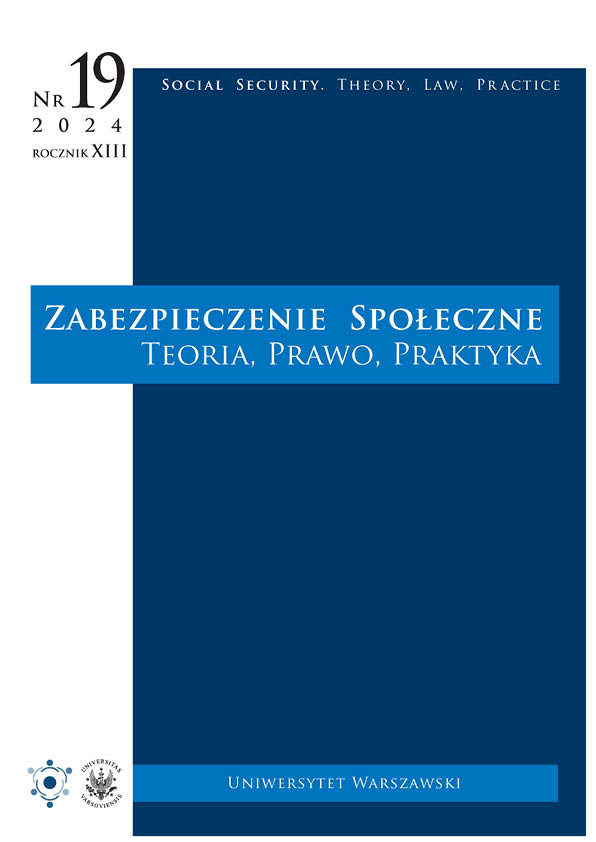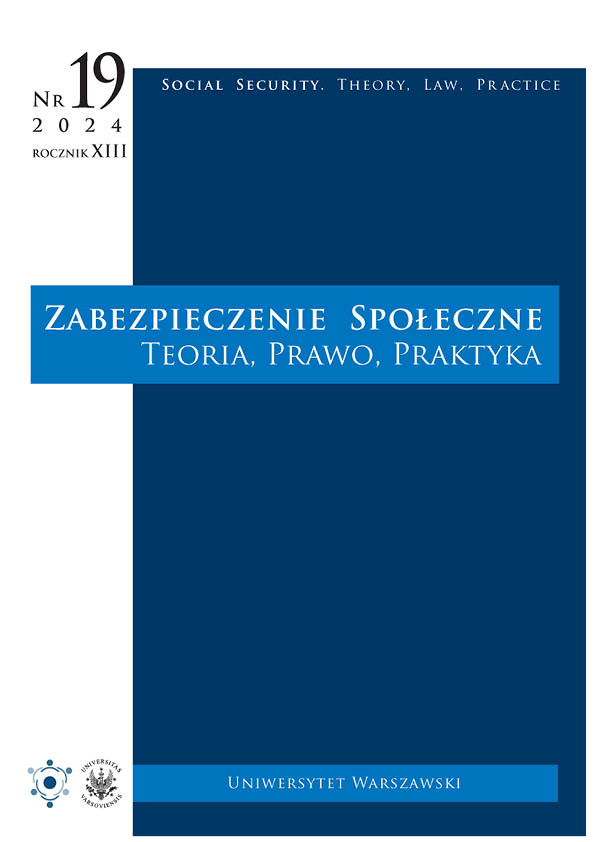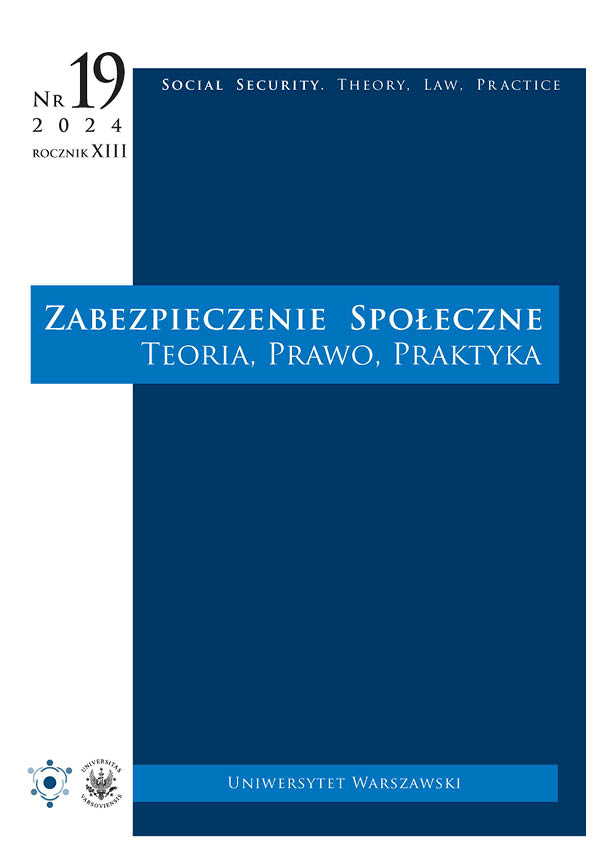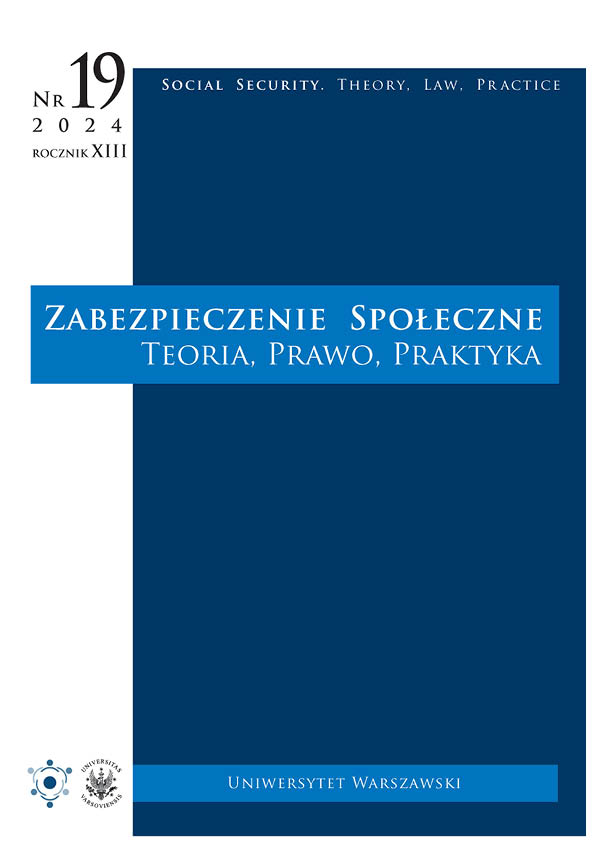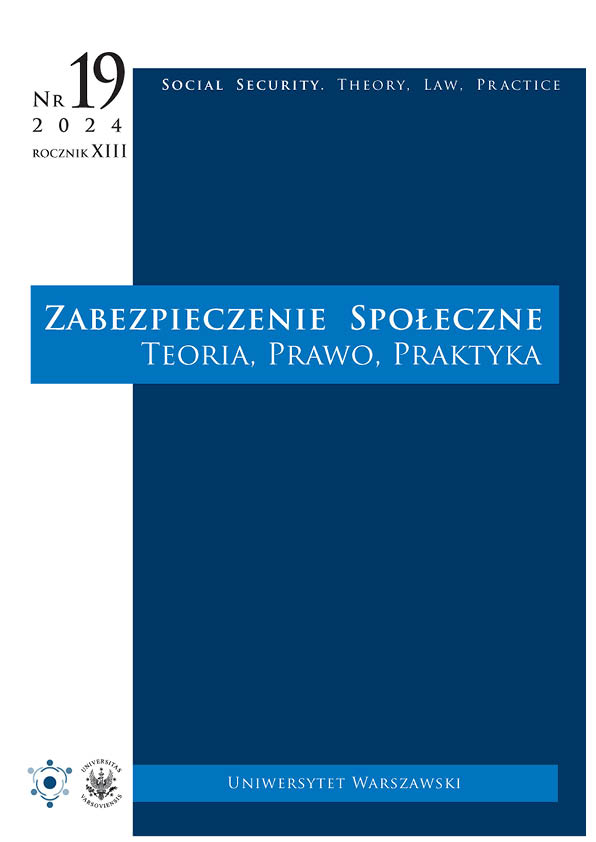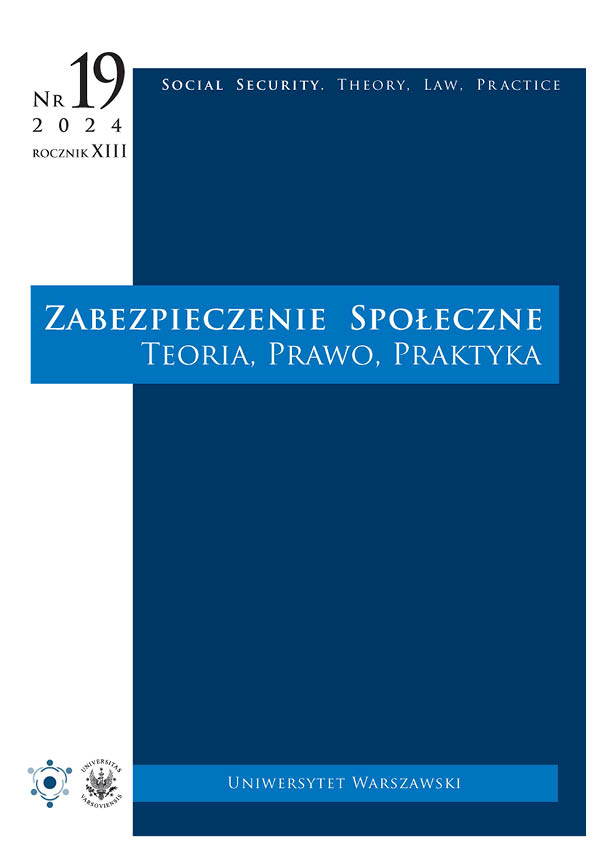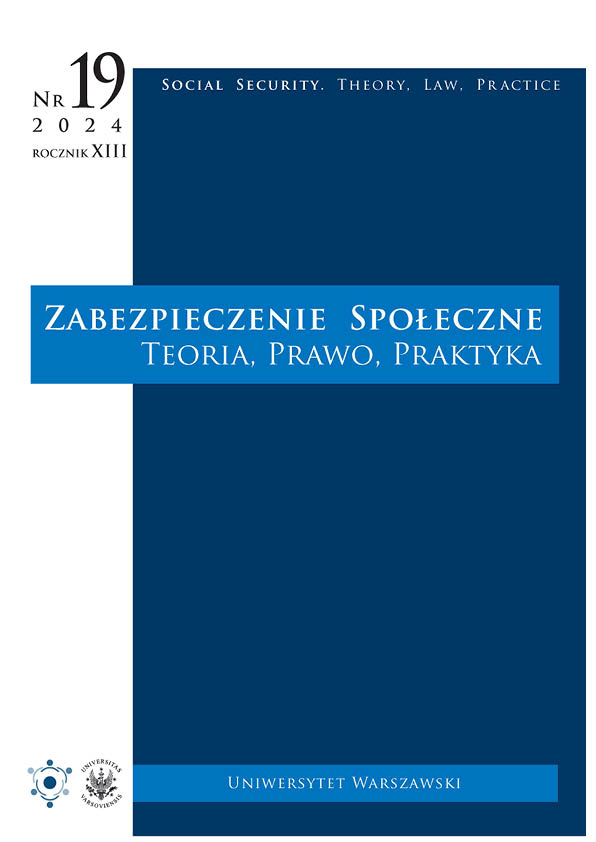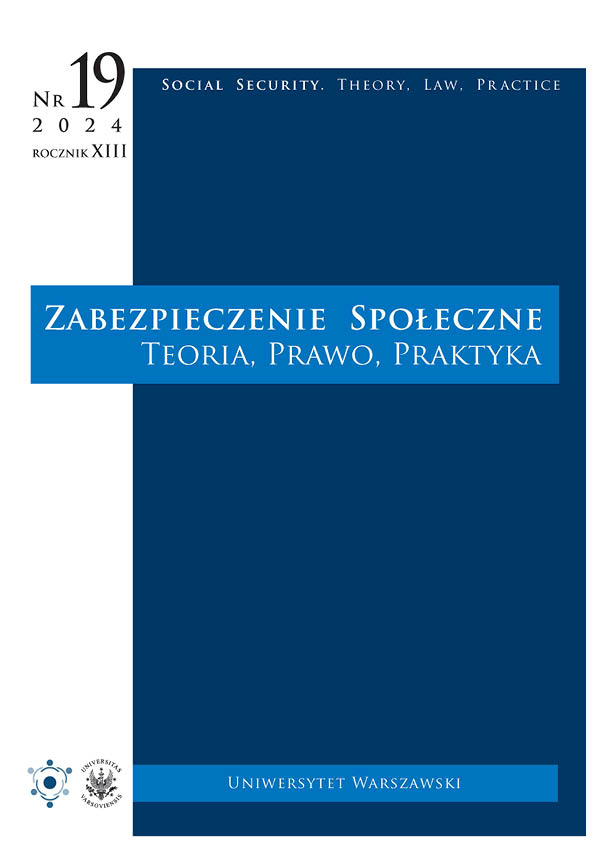About the Journal
Zabezpieczenie Społeczne. Teoria, Prawo, Praktyka jest recenzowanym czasopismem naukowym poświęconym zagadnieniom teoretycznym, prawnym i praktycznym z zakresu zabezpieczenia społecznego. Publikujemy oryginalne artykuły o charakterze teoretycznym, empirycznym, przekrojowym, porównawczym, analizy prawne, w tym dotyczące poziomu międzynarodowego, europejskiego, krajowego, regionalnego i lokalnego. Zamieszczamy również rozmaite informacje dotyczące głównie funkcjonowania systemu zabezpieczenia społecznego, a także wywiady z wybitnymi i uznanymi polskimi i zagranicznymi ekspertami.
Czasopismo obejmuje dyscypliny: 1) historia, 2) nauki o rodzinie, 3) nauki o polityce i administracji, 4) nauki prawne, 5) nauki socjologiczne, 6) nauki o komunikacji społecznej i mediach (zgodnie z Komunikatem Ministra Edukacji i Nauki z 5 stycznia 2024 r.).
Zgodnie z Komunikatem Ministra Edukacji i Nauki z 5 stycznia 2024 r. w wykazie czasopism naukowych i recenzowanych materiałów z konferencji naukowych pismo otrzymało 40 punktów.
Redakcja przyjęła, że czasopismo powinno realizować podstawowe założenia, takie jak:
– zwiększenie poziomu wiedzy na temat systemów zabezpieczenia społecznego wśród różnych odbiorców,
– podjęcie analiz prawnych, społecznych, ekonomicznych dotyczących różnych aspektów zabezpieczenia społecznego,
– wymiana informacji na temat aktualnych działań podejmowanych na poziomie krajowym i międzynarodowym w tym obszarze.
Pismo jest otwarte na współpracę ze studentami, doktorantami i wyższą kadrą akademicką uczelni polskich i zagranicznych.
W piśmie zamieszczane są artykuły w języku polskim i angielskim. Autorzy nie ponoszą żadnych opłat z tytułu publikacji artykułu oraz procesu recenzyjnego. Złożenie tekstu do publikacji jest równoważne z oświadczeniem, że autor posiada pełne prawa autorskie do tekstu oraz z wyrażeniem zgody na publikację artykułu w czasopiśmie zarówno w wersji papierowej, jak i elektronicznej. Artykuły są dostępne w formule open acces.
Czasopismo indeksowane jest w bazach: The Central European Journal of Social Sciences and Humanities (CEJSH); BazEkon; PBN; Biblioteka Nauki; POL-index.
ISSN: 2299-2332
Nr DOI czasopisma: 10.31971/2299-2332
Current Issue
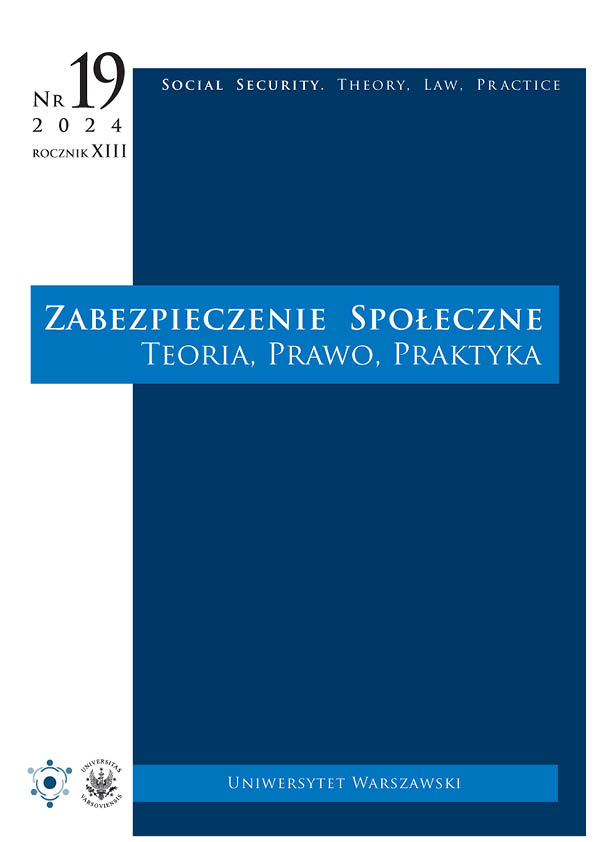
In the nineteenth issue of the journal Social Security. Theory, Law, Practice takes a special look at issues related to the Polish pension system and pensions in the European Union. In the Studies and Problems section, the author of the first text presents the changes that have taken place in the Polish pension system over the past 25 years, focusing on those that have taken place in open pension funds and after the implementation of employee capital plans. The author of the second text addresses issues concerning the legal function of seniority in the context of entitlement and the amount of pensions and annuities in the Polish universal social security system. The topics of the third article relate to a special group of employees who face the problem of insuffi cient vacation leave. The author examines the legal regulations in this regard and points out the need to take measures to reconcile professional life with caring for minor children. The following text studies the important problem of sick leave for women in Poland due to complications of pregnancy and maternal illnesses during pregnancy. The article presents the results of a survey conducted in 2023 on a representative nationwide sample of 1,000 women between the ages of 25 and 40 on the factors that have a significant impact on shaping the length of use of this leave. The last article deals with the topic of remote work. The article analyses one form of remote work, implemented under Article 6719 in conjunction with Article 1421 of the Labor Code, and the rights and obligations of both parties to the employment relationship (employee and employer) related to its performance. In the International Affairs section, the author has attempted to synthetically consider the significant contemporary differences between pensions in the European Union by outlining how they are fi nanced, analysing pension benefi ts and presenting their current evolution (reforms). The Reviews section discusses the contents of a two-volume monograph containing the results of a research project titled “The New Poor Pensioners.” We report on selected new publications in the fi eld of social policy, including social security, in Publishing News.
